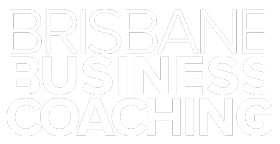Any successful business requires a strong team of staff behind it. It doesn't matter how strong your marketing strategy is if the people responsible for driving your business aren't committed. Knowing how to hire good staff and where to advertise for staff, however, isn't always simple.
A key dilemma many businesses find themselves in is making the decision between hiring new in-house staff or outsourcing for certain positions. It's a decision that requires an educated response. Your staff are the backbone of your company so hiring the right people is paramount.
In this article, we'll be walking you through the benefits of hiring both in-house staff and outsourced staff. Each has its pros and cons, and you should know them inside-out before committing to any one decision. Let's get into it.

Let's start with the basics. In-house staff are your quintessential and traditional workforce. They are the ones filling your offices or retail stores and are usually contractually bound to your business. Unlike outsourced staff, they do not work on a freelance basis, and they usually possess a more generalised role as opposed to specialised.
Projects or marketing campaigns solely embarked upon by in-house staff are usually called in-house operations. The full scope of the project or campaign is completed entirely by the staff within any singular business. There are no third parties or freelancers involved in the process.
There are multiple reasons why a business may decide to complete a project this way. A company has greater insight and control into its progress when all of its operations are completed in-house. This direct control is just one of the many benefits associated with only using in-house staff.

There are many benefits associated with applying your in-house staff to a new project or campaign. We've listed just some of them below to give you an idea of how this could be the best choice for you.
If you outsource a position, you potentially take a task away from an in-house member of staff who could have developed their own skills. Think of it as an investment in the future of your business and your staff members alike. The people you work with want to know that they're appreciated. Investing in their development is a great way to earn loyalty.
If your project is entirely in-house, then you will be the one allotting deadlines and specific working hours. Most of this may already be written into the contracts of your in-house staff. You don't get the same control when working with a third-party organisation or freelancer. By keeping it in-house, you have greater insight into timekeeping so results are delivered on-time.
It might sound overly harsh, but there's every possibility that freelancers don't really care about the project you involve them with. Don't get us wrong, outsourced staff can be highly diligent and dedicated to the work they complete. However, your in-house staff will be motivated by a personal attachment to the company. This attachment may drive greater results from your project.

Outsourced staff are essentially the opposite of in-house staff. They are either third party individuals or entire organisations that complete one or more tasks for a separate company. They can be made up of freelancers or their own set of employees.
The tasks completed by the third party individual or organisation are often completed in entirely separate offices from the original company. A singular company embarking on a new project or campaign may choose to outsource numerous tasks to third party providers.
Utilising outsourced staff can be a great way to lessen the load on your own in-house staff while still achieving desirable outcomes. It may also allow a company to lower costs in addition to providing greater specificity to a project outcome. It may also simply be the case that no one on your in-house team possesses the specific skill set you require, so you need to look further afield. The reasoning for outsourcing varies widely.

Lower costs and greater specialisation are two of the standout benefits that lead businesses to outsource. However, there is a mixture of factors that may make it the best choice for your business. Listed below are just some we've selected to help inform your decision.
A lack of commitment definitely isn't something you look for in an employee. If you decide to outsource, however, it can be a huge plus. Without any associated long-term contracts, outsourced staff are there for you as long as you require them. This makes them ideal for companies who can't afford to recruit an entirely new team but need specialist services for a specific task.
When working with outsourced staff, you're working with a person or group of people who are dedicated to their craft. You won't be their only client. They will have likely spent years honing their abilities and delivering fantastic results to numerous other organisations. Too much pressure on an unqualified in-house team can cause the whole project to fall apart. Don't be afraid to outsource when necessary!
This is a big one for a lot of companies. The start of a new project or marketing campaign puts a lot of pressure on all of your staff. There are numerous deadlines to meet, and they are potentially stepping outside their comfort zone. The last thing you want to do is overload them with territory they aren't specialised in. By outsourcing some of your work, you lessen the load they need to bear. A well-rested team is a successful team. Burnout can dismantle a project from the inside-out.
The answer to this varies enormously depending on what sector your business falls into. However, we can quite confidently say that there is a lot more you could be outsourcing than you presently do. Many businesses are unaware of the money they could save by outsourcing particular tasks, and it isn't difficult to do.
So, “What kinds of things can I outsource?” Graphic design and visual marketing is one example of a universal practice that is often best outsourced. Not everyone has an eye for design. Your in-house team might run the logistics side of things wonderfully, but designing a logo is a whole different ball game. Additionally, your market research could be outsourced to provide greater detail in key demographics.
Again, this varies based upon your company's own intentions and capabilities. Generally speaking, you should outsource tasks in instances that fall into any one of the following categories:
Essentially, you should use outsourcing as a means to take care of tasks you no longer have time for or tasks that are hyper-specialised. It is up to your own jurisdiction what those tasks look like within your company. They often relate to administration, data management, and customer support.
If you're looking to build your in-house team as opposed to outsourcing, you need to make sure you're advertising in the right places. Where to advertise for staff? Thanks to the internet the pool of potential applicants is bigger than ever, but this has its own drawbacks.
If you do choose to advertise online, ensure your application process has some necessary requirements. Many businesses require certain questions to be answered prior to the submission of a resume. This reduces the risk of being inundated by applicants who are not appropriate for the advertised role.
A virtual assistant, or VA, is one of the most popular forms of outsourcing available because of how many tasks they can juggle. A singular VA can take care of administrative duties, customer support issues, bookkeeping, among countless others. They are a great way to free up time and relieve pressure from your business by outsourcing repetitive tasks.
You're probably wondering, “Should I get a VA?” Only you know, based on the budget of your company, whether it is economically viable to hire a VA. They are ideal for a business that finds itself bogged down with miscellaneous tasks that ultimately don't further their core goals. That doesn't necessarily make them a perfect fit for all. Consider the whole picture before committing to anything!
Ultimately, the decision on whether to utilise your in-house team or outsource your tasks is unique to every company. Every business has entirely different expectations and requirements. Through this guide, we hope we've given you insight into the benefits of using both.
If you are interested in learning more ways to boost the success of your business, consider our coaching services. We offer a full portfolio of mentoring opportunities designed to take your business practises to the next level. Explore our website for more information!
Growing a business is a multi-layered undertaking rife with ongoing decisions that may have little to do with the inspiration behind your business idea. Sales and marketing are both foundational layers for a business's growth.
No business can be successful without both targeted approaches to generating revenue. But from the start, they require proper care and attention. Business growth can grow stagnant with slow marketing and sales. Even if you have a fantastic business idea, low sales and marketing plans can hold you back from success.
While it is easy to lump sales and marketing together in the planning process, they are both distinct business functions requiring attention and different approaches. A successful strategy begins with understanding the two and developing sales and marketing plans to support one another. Once you know them, you can integrate tools and marketing or even outsource the process to an expert agency.

The marketing plan is a communication tool to take your ideas and vision from your head to the customer's cart. It lays out four essential elements of a product: the price, the market, and where to find it. This stage is also what marketers call the 4Ps of Marketing: product, price, place, and promotion.
As you make this plan, you will set goals, home in on the marketing channel, and develop a marketing campaign. It requires teamwork and collaboration. Marketing goals are typically big picture and promote the overall brand, service, product, and company. The marketing team will price the product and market them in a way to bring in customers.

The sales plan focuses on the sales process — namely, the target market, team structure, and goals. A sales plan will outline tools and resources to hit the goals.
Sales goals are quantitative, centering on sales volume and quotas. You can measure these goals and re-evaluate them on a month-to-month basis. Understanding the sales targets will help managers set monthly sales goals for the individuals, teams, and departments responsible for ensuring sales conversion.
You can think of sales and marketing plans as a two-pronged approach. Both elements are necessary to start the conversation and close the deal with each customer seeking your product or service.
Marketing is what brings a client to the door (or the website). It entices people to learn more about your company, services, or products and gives them essential information about your business. Data can be anything from company values to the business model.
Sales channels operate to reinforce the company's offerings and convert curious visitors into committed customers. It intertwines with marketing to reflect company values and communicate with clients.
At this point, you may be wondering, “Why do I need a marketing plan" or "Why do I need a sales plan?” The fact is that you need both.
A marketing plan is how you make your product or service appealing to potential customers. Without a marketing plan, you won't be able to achieve nearly enough visibility. Depending on how saturated your market is, this low visibility could tank your operation.
With a sales plan, you can create a targeted approach to driving profits. Without a sales plan, you leave yourself vulnerable to profit loss. The production value, overhead costs, and other aspects of your product or service may not be worthwhile, but you won't know it until you have a sales plan to measure your profit and track your progress.
Stagnant sales also can be an indicator of a flawed marketing plan. It is easy to see how they work in conjunction.

Sales and marketing are two halves of a whole and should not operate in separate universes. You want just the right balance of both to have harmony, and to do so, you need plans that align the two areas.
These plans should share the common goal of attracting prospective customers and converting them into paying customers. At the end of the process is the essential nexus of any business plan: revenue generation.
Both your sales and marketing teams should share their goals and provide regular updates on progress. A common theme between both sales and marketing plans are the target markets, so this piece should align. The team can identify the target market or customer profile and use a standard definition or vision in their work.
Sharing goals and common themes will ensure each team has a solid and common foundation. It also will provide a reference for measuring marketing and sales performance.
Harmony between sales and marketing can lead to enhanced customer attraction and revenue generation.

When done right, both sales and marketing will create returning customers and a loyal base for business growth. Once you know how to differentiate the plans, you will need to capitalise on available resources for each type.
Just like the goals, some of these resources can overlap. For example, social media is a tool both sales and marketing can tap into it. Marketers can use it to promote content. Your sales team can use it to measure how many people buy through social media ads and your profile. When both groups work together, there can be harmony in the shared use and overlapping goals.
Some tools for each type of plan include:

Perhaps you are reading this and questioning where you will find time to create two different but cohesive plans. Maybe you have limited knowledge on the resources listed here and are inwardly groaning at the knowledge needed for effective plan creation. This part is where you ask yourself another question: Which is better for sales and marketing, in-house or outsource?
The answer depends on your experience, comfort level, knowledge base, and business needs.
Let's go through the pros and cons of each.
When you turn to a third-party agency to create your sales and marketing plans or to provide these services for you, you can benefit from:
On the flip side, some drawbacks of outsourcing include:
When you operate a sales and marketing team in-house, you have a different set of benefits:
Just like with outsourcing, there are some drawbacks to the in-house approach:
When deciding between in-house and outsourcing, know it is about what is best for your business. Consider integrating sales and marketing plans and reevaluate as necessary. You want to invest in these plans, so your brand sees excellent returns. The right choice is the one that provides focus on the essential functions: growing and operating a profitable business.
As a business coach, your job is to keep everyone motivated, always bring clarity of goals, and steer people in the right direction.
With that in mind, here are our top book recommendations to help you not just maintain your role as leader and mentor but also be at the forefront of your coaching business.
Mike Michalowicz's third book addresses a common mindset when starting a business: "One day, I'll be profitable." Profit First emphasizes that the more you delay profit consideration, you become less and less capable of figuring out how to drive profitability. Profit is the health quotient for business. Ask yourself: Is my business cash eating or money-making?
Best quote: Profitability isn’t an event; it’s a habit.
If you're a 'what needs to be done' person, this is the book for you. Traction highlights the need to have systems in place and in paper to get you from mindset to execution. This book brings in a 6-component business model called EOS that summarizes all you need to do to plan for your future, get all things done and make sure nothing falls through the cracks.
Best quote: In summary, successful businesses operate with a crystal clear vision that is shared by everyone. They have the right people in the right seats. They have a pulse on their operations by watching and managing a handful of numbers on a weekly basis. They identify and solve issues promptly in an open and honest environment. They document their processes and ensure that they are followed by everyone. They establish priorities for each employee and ensure that a high level of trust, communication, and accountability exists on each team.
I enjoyed this book so much I listened to the audio book twice in a row and then bought a few hard copies to give to few clients who were having problems, specific problems that this book outlines in glorious detail.
Rather than slave for your business, create your models and methods with yourself in mind. Gerber insists the entrepreneurs should not be enslaved by the business. Build in a way that does not make you feel trapped.
Best quote: If your business depends on you, you don’t own a business—you have a job. And it’s the worst job in the world because you’re working for a lunatic!
You may have the mindset, the desire, and the skills to achieve your definition of success, but the real difference lie in whether you’re a decision-maker or a procrastinator. Procrastination means giving up on yourself, it means paying too much attention to others opinions about you and the possibilities in your life, it means looking at successful people and asking yourself “What if?” when it will probably be too late to change something. Think and Grow Rich tells you that taking action equals making decisions.
Best quote: Action is the real measure of intelligence.
You should always run a company as if it will last forever, and yet you should also strive constantly to maximize its value, building in the qualities that allow it to be sold at any moment for the highest price buyers are paying for businesses like yours. Don’t become synonymous with your company. If buyers aren’t confident that your business can run without you in charge, they won’t make their best offer.
Best quote: Once you’ve isolated what is teachable, what your customers value, and what they need most often, document your process for delivering this type of product or service.
If you want to achieve something, forget setting goals. Set systems. The most effective way to change your habits is to focus not on what you want to achieve, but on who you wish to become. This book outlines the 4 Laws of Behaviour Change that are simple to build better habits.
Best quote: You do not rise to the level of your goals. You fall to the level of your systems.
The Checklist Manifesto explores the fundamental importance of the humble checklist in organizing and managing complex processes. Gawande speaks from his own experience, explaining how even the most competent surgeon, operating without a checklist, can miss a critical step. The increasing complexity of modern surgical procedures has made checklists essential, he argues.
Gawande focuses on medicine, but he also delves into the use of checklists in the aviation, construction, and investing industries. In Gawande’s view, the elaborate processes that characterize the modern world demand that we turn to the checklist, a simple tool that’s been around practically forever.
Best quote: Under conditions of complexity, not only are checklists a help, they are required for success.
Over decades of coaching and training thousands of people, David Allen discovered that most stress people experience comes from inappropriately managed commitments they make or accept. Essentially, the book differentiates ‘what getting things done’ is vs just ‘thinking of getting things done.’ If you’re looking to get clarity of thought, minimising distraction and time wasters, this is a good book to read.
Best quote: There is usually an inverse relationship between how much something is on your mind and how much it’s getting done.
This is the book recommended for those who want to delve in ecommerce for the first time. If you’re tired of your 9 to 5 job or looking to add a second revenue stream, this book will teach you product development and outsourcing, pricing strategy and promotion with lots of valuable online resources.
Best quote: Can’t find a quote or review
Artistry, empathy, taking the long view, and pursuing the transcendent - these qualities have been scorned in the business world and ignored by schools. But it is now time to use both sides of the brain for the brave new world of the 21st century where workers of all stripes will need many different skills to navigate three or four separate careers.
Pink states that individuals and organizations that want to succeed in the future are going to have to ask themselves three questions:
1. Can someone overseas do it cheaper?
2. Can a computer do it faster?
3. Is what I'm offering in demand in an age of abundance where people are looking to satisfy their aesthetic, emotional, and spiritual demands?
Best quote: Good luck in the age of art and heart.
Most people believe that the best way to motivate is with rewards like money—the carrot-and-stick approach. That's a mistake, says Daniel H. Pink.
In this book, Pink exposes the mismatch between what science knows and what business does—and how that affects every aspect of life. He examines the three elements of true motivation—autonomy, mastery, and purpose-and offers smart and surprising techniques for putting these into action in a unique book that will change how we think and transform how we live. While this is generally a management and leadership book, it will help you get more insight about your own motivations and how it affects many more situations outside the workplace.
Best quote: There’s no going back. Pay your son to take out the trash—and you’ve pretty much guaranteed the kid will never do it again for free.
At the core of this book is the Law of Attraction: what you think about, talk about, believe strongly about, and feel intensely about, you will bring about.” Canfield emphasizes that if you want to be successful, you have to take 100% responsibility for everything that you experience in your life. The book is comprehensively divided in 6 parts, tackling success principles initially then leading to actionable points translating into leadership, relationships, motivation, mentorship and so much more.
Best quote: The world doesn’t pay you for what you know; it pays you for what you do. There’s an enduring axiom of success that says, “The universe rewards action.” Yet as simple and as true as this principle is, it’s surprising how many people get bogged down in analyzing, planning, and organizing when what they really need to do is take action.
This collection of John's blog posts are a candid, sometimes serious, look at that the challenges business owners face in building a successful and profitable business. A good part of the book deals with micromanagement, poor implementation, bullying and other nuances that make the workplace or business dreadful.
Best quote: There is something basically wrong in the organisation if there are insufficient systems to protect the company without the need of micromanaging.
Everybody Matters is about caring for and treating people in your organization as if they were, (and in a sense they are) your family. He emphasizes that true leaders realize that all of their people are mothers, fathers, sons, daughters, sisters, brothers with lives that matter. They are not merely employees to help an organization succeed, or to use to help the leader succeed. He says that “caring” is the key difference between leading and supervising, whereas most people in leadership positions are merely supervising. You may find this idea mushy but the book also details the practical manner with which he set about to realize it, and the success with which he’s implemented it.
Best quote: We simply asked, “Why can’t business be fun?”
The central theme of the book is literally delivering happiness as a business by living a life of passion and purpose.
Delivering Happiness details the story of Tony Hsieh and his company Zappos, an example of how thinking long term and following your passions first can lead to not just profits, but a happy life for you, your employees, and customers.
The book provides an alternative approach to corporate culture that focuses on the simple concept of making people around you happy, and by doing so, increasing your own happiness.
Best quote: Money alone isn't enough to bring happiness . . . happiness [is] when you're actually truly ok with losing everything you have.
Are you thinking of starting a new business? Coming up with a new business idea is just the start — once you get down to it, there's a lot to think about. Many people find this process complicated and overwhelming and, as a result, some never get their idea off the ground.
If you're willing to spend time and effort building a business from scratch, you need to know what steps to take to reach your goal. Some budding entrepreneurs understand the time and effort involved in creating a successful company but aren't sure of the exact processes needed to launch a business.
That's why we've put together this simple guide for starting a new business. It covers all the main things you need to consider and sort out if you want to start your own company or embark upon a new business venture.

Your exact action plan will depend on the nature of your business and your personal circumstances; there's no one-size-fits-all blueprint for creating a successful business. Having said this, there are certain steps you should take in a particular order to give yourself the best chance of success. Here we take a look at those essential steps in more detail.

Before you start a new business venture, spend some time thinking about why you want to do it. Are you looking for wealth and power, or is there simply a gap in the market that you could fill? Are you motivated by passion for a particular subject or product, or is your business idea driven by ethical or environmental concerns?
Understanding the driving force behind your decision to start a business is key to its success. Why? Because when a business isn't aligned with what you actually want to do and are passionate about, it's far more likely to fail.
Start to think about your new business in more detail. If you're stuck, consider the following questions:
Once you've got a better understanding of why you're setting up your business and what it is, you should then think about the customer, as you ultimately won't have a business unless you have a customer to purchase from you. Work out who your ideal customers will be and why they would choose to buy your products or services. Make sure to focus on the details. These include:
Most importantly, you should think about why you want to sell to this particular market and how you will be able to provide value to them.
This is where you really answer the question ‘what do I need to do to start a new business’ for yourself. Create a comprehensive business plan that addresses:
At this stage, you need to ascertain whether there's substantial demand for your product or service. The main question here is: will it work? You need to find out whether your new business idea is worth pursuing before you invest any more time and money at this point.
To perform market research, work with your target clientele through focus groups and surveys to assess demand. You can also use SEO and public data to further inform your business plan. Study your competitions to find out the opportunities and limitations in your particular field.
One of the main causes for businesses not working out is that there is no market need, so this step is really essential if you're going to succeed.
Whether your business will be entirely online (e.g. an e-commerce store), or a location based in-person service, you'll always need a professional website to build a successful business. According to the Local Search Association report from April 2017, 63% of people will use a company's website as their primary means of engaging with them.
Firstly, having an online presence is essential for growing your customer base. It helps you in presenting as a professional business, and with your digital marketing strategy (more on that later). You should:

Even before you've launched, you need to have a system in place to organise your business accounts. This includes everything from how much you'll need to get your business started, to how you'll keep track of expenditure and income as an active business.
Start by looking at how much you'll need to get your business up and running. Do you have the funds yourself to get started, or do you need to borrow money? Will you still be working another job, or do you have enough to live on until you can turn a profit?
It's always a good idea to overestimate the amount of capital you'll need in the beginning rather than underestimate it, as this is how many startups go bust.
Before you go live with your business, you need to have a system for managing your finances in place. Luckily, there are plenty of accounting systems available that make organising your business finances straightforward and easy to do even if you have little experience. Some accounting systems to consider include:
It's also important to know that you will have certain tax and legal obligations to adhere to when you start a new business. You should make yourself aware of the correct procedures in your area to ensure you don't encounter problems later down the line.

Before you can start selling your service or product, you need to build your brand and market it, so that people are aware of your business before those literal or figurative doors open. Here are some key things you should implement to get some sort of following before you launch.
Intuitive Website
We've already covered the fact that you'll need a website, but make sure that it's mobile-friendly and optimised for location, so people looking for your kind of business can find you. This digital proof of your business confirms its legitimacy, can help people in your local area locate you, and will provide potential customers with everything they need to know.
A simple but recognisable logo is essential for any strong business. It allows people to easily identify your brand, so make sure you're consistent with it. Include the same logo on your website, all email communications, social media pages, and any printed documents.
Social media pages are essential for any business in the digital age. With over 2.7 billion people active on Facebook alone, it's one of the biggest potential advertising sites available. Create professional pages and use them to spread the word about your new venture.
Paid social media advertising can be highly effective when done right. Given that much of online brand discovery takes place in public social feeds, there's no better place to make people aware of your business. For example, Facebook's Pixel tool allows you to create targeted ads that will appear in the news feed of consumers in your demographic.
Offering discounts and coupons through social media when you launch your site is a great way to drive traffic to your site and increase your brand's visibility. Do note that the best social media platform for you to use will depend on your target customers. Therefore, you should make sure you've thoroughly researched your target demographic before pumping advertising funds into the wrong site!
Email marketing campaigns can be the key to unlocking more sales and a greater reach. First, you'll need to build your email marketing contact list, which could be done through a form on your website or social media channels. This type of marketing could also be performed through cold sales emails or newsletters.
Once you start sending out emails, use analytics tools to monitor open rates and click-throughs. Perform A/B testing to see which email formats and content yield the most success, and build on this for future email campaigns.
Whichever way you choose to send out your emails, know that email marketing offers one of the highest returns on investment and is therefore definitely worth focusing on. Remember to make your marketing emails personal. Emails with the customer's name in the subject line have a much higher click-through rate than generic subject lines.
Pay-per-click (PPC) advertising is a popular method of online advertising, and it's easy to do through Google. Similar to social media advertising, your ads appear at the top of Google search results to relevant searchers. When well managed and accurately targeted, PPC campaigns offer an incredibly efficient and reliable means of generating more traffic to your page and thus more potential customers.
Posting high-quality, relevant, and SEO-optimised content through your website, blog, and social media channels keep potential customers engaged with your business and can also work wonders for your visibility. It can:
You need a great online presence to be successful in the digital age, and so while it can be time-consuming, great content should be seen as an investment rather than a cost to your business.
If you're overwhelmed by the sheer amount of work and technical tasks involved in starting a new business and marketing it, know that there are plenty of resources out there to make those tasks more simple.
If graphic design isn't your forte, there are lots of web-based apps and services that can help you design essential marketing features such as your website and your logo. Sites like 99Designs are great for hiring professional graphic designers to work on your branding and website. You'll find lots of professional services available through Fiverr, and often at an affordable price.

With all the essential components in place, your business can go live. The question now isn't so much ‘what do I need to do to start a new business’ as it is ‘how do I sustain my new business'.
That's why you need to focus on growth. The launch of your business and your first sales are only the beginning, and you need to continue to grow to keep making profit. Consider collaborating with other brands in your industry, or partner with charity organisations. Focusing on digital marketing will also help you see steady growth as more people become aware of your business and you establish a greater presence online.
Starting a new business is an exciting but often overwhelming experience, so make sure you're prepared for what lies ahead with our handy guide. Don't forget to make a thorough business plan and assess the market before investing too much time or money.
Above all, you should remember that starting a business is never easy and rarely straightforward. Be prepared for some bumps along the way and always be ready to adapt and change your course of action as things go awry.

Running a business is no easy task. You alone are responsible for its success. You have to oversee your day-to-day operations, employees, customers, and everything in between. And, the weight of big decisions rests solely on your shoulders.
Even for the most seasoned business owners, all of this can be overwhelming.
Luckily, you don't have to go it alone. A business mentor can give you and your staff much-needed guidance. Their expert help will go a long way in improving your business. With them, you can elevate the quality of your products/services, increase profits, and reach other vital goals.
Get started today with our Brisbane business mentoring services! We'll connect you with an expert who will help your company reach its full potential.

As a business owner, your entrepreneurial mindset is one of your significant assets. It's responsible for your go-getter attitude and drives you to succeed.
That said, this mindset can also be your biggest downfall. It can make you hesitant to reach out for help when you need it.
The truth is that any business owner, no matter how experienced, can benefit from a mentor. Here are some of the most compelling reasons to hire one:
Many business owners have found success thanks to the help of their mentors. For instance, Richard Branson of Virgin Atlantic received mentorship from Sir Freddie Laker. Steve Jobs had guidance from investor Mike Markkula, who provided advice and helped make Apple what it is today.
So, who's to say that you, too, can't find success with the help of a mentor? Contact us today to get started!
Typically, your mentor will be from the same industry you're in, and that commonality is invaluable. They will be someone just like you, only with many more years of experience under their belt.
This experience will help you take your business to new heights. After all, your mentor was once in your shoes. They'll help you avoid the mistakes they made and give you practical advice.
You don't know everything, and it's silly to pretend otherwise. Whether it be marketing, finance, etc., some areas aren't your cup of tea. You'll need to find a way to fill in these gaps.
What better person to do this than your mentor? They will advise you on things you may have little knowledge of, giving you a more well-rounded understanding of your business.
As an entrepreneur, it's easy to get tunnel vision. You become so caught up in your work and forget to take a step back.
Luckily, your coach can provide you with a much-needed fresh perspective. They'll give you an outsider's look that is essential for keeping up with the industry's latest happenings. They'll provide you with advice for perfecting your pitches, innovating your internal processes, and more.
Our whole lives, we've heard the phrase “It's not what you know; it's who you know.”
This adage couldn't hold more true with business mentoring. Knowing the right people will help you take your business to the next level.
But, making connections is easier to hope for than achieve. It can be tricky to break your way into the industry and meet key players.
A business mentor makes this process much more manageable. They've been in the industry for years and already have plenty of connections. They'll be able to introduce you, which will help you build your own connections list.
A coach's purpose is to help you grow. They teach you how to take charge of your company and connect you with helpful resources. Also, they help you with personal growth, giving your company a solid leadership foundation.
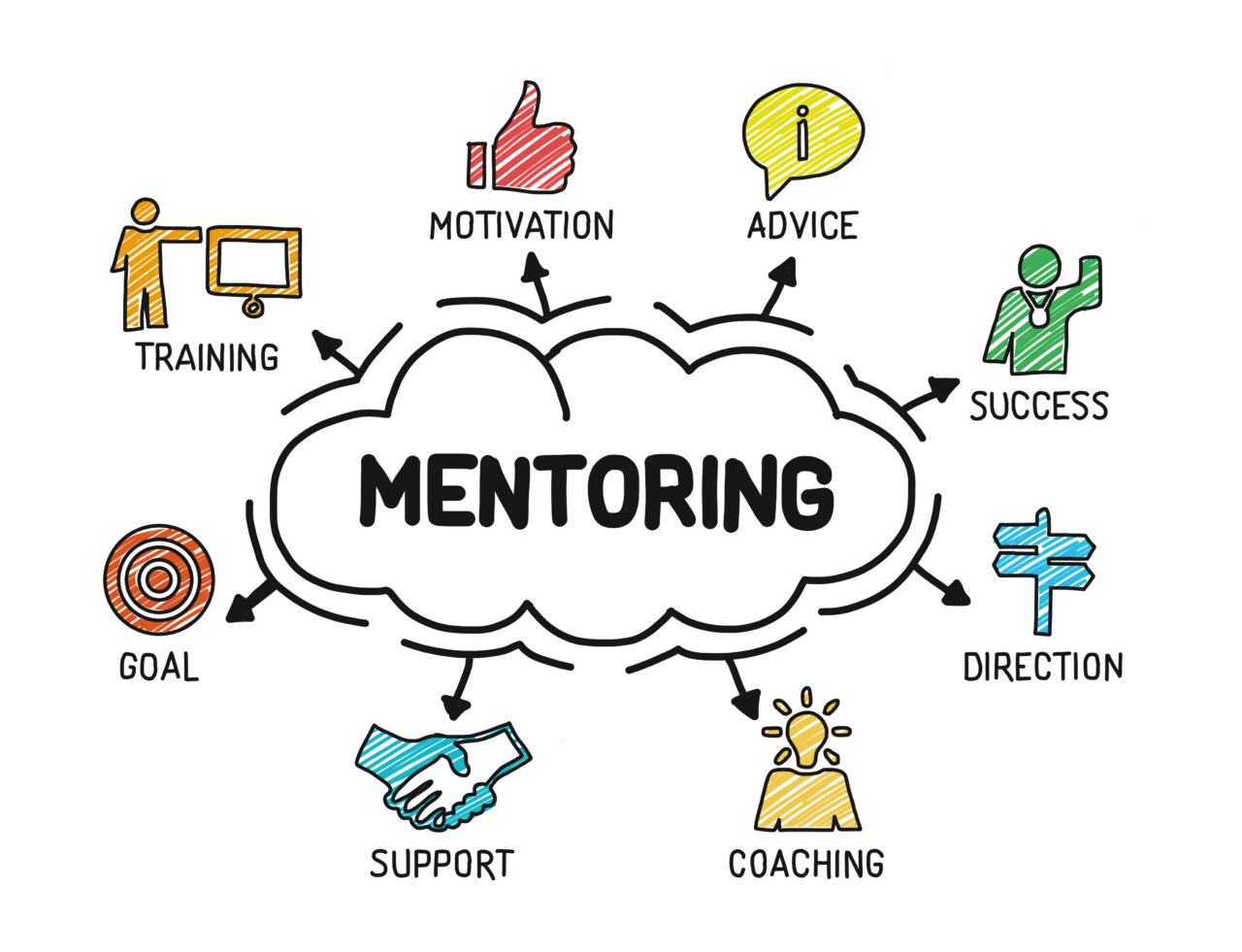
When looking for a business mentor, you want someone with years of experience relevant to your industry. You should also look for someone who is:
These traits will ensure your coach gives practical advice and helps your business grow.

There are many ways you can find a business mentor.
Some people scour networking events, looking for someone who might be interested. Others rely on their existing industry connections or use professional networking sites.
These methods can be useful. However, the truth is that it can be hard to break into your industry and find someone willing to coach you.
We recommend hiring a business mentor. Our coaches are dedicated to your company's success and will give you the individualised attention you deserve. Contact us today!

Business mentoring will help you take your business to new heights. So, if you hire one through us, what can you expect?
Our Brisbane business mentoring process goes a little something like this:
We'll get an idea of your company, the goals you have for it, and other important information. Then, we'll connect you with one of our expert coaches.
Our coaches specialise in a variety of fields. We enlist experts from industries like manufacturing, law, accounting, and more. We even have coaches who specifically focus on team building. So, whatever your needs may be, you will get a coach who has relevant experience.
All of our coaches care about your success. They give you:
Whatever your goals may be, we strive to get you there.
Our coaches have all the traits of great business mentors. They are talented, experienced, and eager to help you get results.
The mentor relationship is what you need to meet your company's goals. Get started with Brisbane business mentoring by calling us today!
Looking for a way to improve, grow, and empower your business? It would be best if you started with staff development.
Companies are always asking how they can improve leadership and be more productive, but they forget the obvious. As much as company leaders grow and shape the business, it is the staff at every level who keep the business successful. Companies have to remember that committed, dedicated employees are what can make or break a business.
Staff development isn't a top-down approach. It means showing that every employee has the potential to innovate and drive a company's mission. Investing in staff development is the best way to invest in your company and ensure its future success.

Staff development doesn't mean you need to keep hiring new employees until you find a perfect fit. Instead, it means helping employees become the ideal fit.
More specifically, staff development means improving your employees to innovate your business. Employees learn new skills that they can bring to your company.
This process involves various initiatives that will improve the current company talents, helping current employees to grow in their skills. Staff development can take many forms, such as
• Coaching/ Mentoring
• Conferences
• Workshops
• Career-planning
• Certifications
• And more
There are many available staff development tools online and for in-person sessions. You can find various staff development webinars online. Or, you can create plans in-house. For example, rather than senior employees working separately from others, they can share their expertise through mentorship programs to make teams stronger.

Staff development is an idea you'll hear about a lot, but not implemented to a great enough effect to make an impact. The reason for this may be that companies believe it's easier to hire outside talent with more qualifications rather than work to improve their current employees. However, this is a considerable and detrimental misunderstanding.
Better employees make for a better company. It is simple but straightforward logic. Continually trying to find and hire the right employees is a waste of company resources. Evidence shows that retaining and developing current staff has the most significant benefits for your company in the long term.
Hiring a new employee not only costs money, but it costs the company's time. No matter the new hire's qualifications, they have to learn the ins and outs of your business. Everything from the day-to-day operations to intricate systems may be new to even the most experienced.
Training a fresh employee will also take time away from your current employees who now need to devote themselves to getting a new hire up to speed. This time equates to money lost, as you end up paying managers to cover basics covered with a new hire. Moreover, the time it takes to get someone up to scratch and become productive also equates to even more loss.
Staff development circumvents all these losses. Since you are honing the skills and knowledge of someone already familiar with company operations, the training time is much shorter.
When it pays to invest in current talent, what do you have to lose? The benefits of staff development show on the bottom line in more ways than one.
Humans are not machines. So it may not be surprising to learn that feelings towards your job change how effective and productive you are at said job. This Gallup poll demonstrates that less than a quarter of employees remain actively engaged in their career. Indeed, it shows that over 15% are actively disengaged from their job, i.e. not engaged at all in their job.
What does that mean for business owners? Gallup estimates that this disengagement costs $300 billion in net losses. It may be discouraging, but instead, let's focus on the positive.
Studies also show that engaged employees lead to greater profit. That means that with positive changes to your work culture and staff development, a rise in profits may just be over the horizon!
Staff development helps to keep employees engaged, and experts say that engaging employees can come from simple initiatives. Showing empathy, regular check-ins, and demonstrating that leadership hears staff concerns can lead to happier employees and reduce burnout.
Just as it takes time for new hires to learn a company's practises, it takes time to understand the strengths and weaknesses of a company. Often, it is the veteran staff who best understand the pitfalls of a business and have ideas of how to innovate it.
One large example is a problem with communications. Surveys report that communication within a business is often lacking. Without strong, clear communication to employees, confusion is inevitable. It is logical why these surveys estimate that lacklustre communications lead to profit loss.
Seasoned employees of your company know what is necessary to communicate better. Communication is key to profitability, and this is where employees who understand your business and company culture can be lucrative.
And that's only one example of how they can help!
Engaged employees also can identify a variety of problems and approach these issues with a completely different perspective than outside hires. Some of the best solutions may be homegrown.
Staff development means that skilled employees can move up the ladder rather than feel forced out to seek new opportunities. And in the thriving work environment, employees may have worn different hats throughout their time at the company.
With extensive experience in a variety of roles at the same place, employees are likely to be more flexible. Why is flexibility desirable?
Change is inevitable. A company that remains stagnant will never grow. As your company changes and expands, roles and responsibilities may shift around.
Besides company culture issues, it's expensive to have a higher turnover with every change in your industry. However, employees that have grown and matured with you over the years will be more likely to succeed when changes come.
Some changes are sudden and unexpected. When the time comes, you want a team that you can trust to adapt and do the job well.
Any good business-minded person can connect profits with customer loyalty. To go further, the Harvard Business Review connects customer loyalty with employee loyalty. Training and experience lead to employees who can serve customers better.
Additionally, when employees have opportunities to learn and grow, their morale is higher, and their dissatisfaction with their job is lower. These opportunities to develop and earn promotions and rewards make employees appreciate their company. It forges a sense of loyalty between employees, managers, and business leaders.
Loyalty gives employees a desire to see their company succeed. This drive for success can also boost general employee performance.
When employees receive effective staff development, they hone their expertise and grow. In addition to company loyalty, continued growth may also lead to more effective on-the-job training between employees.
With plenty of opportunities to go around and a company's success viewed as a shared success, it is in employees' best interest to help each other. Learning from colleagues can also be the most beneficial form of training. Better training leads to effective, engaged employees. That means more profit for your business.
By now, it may be clear that using staff development tools will make for happier employees and a more productive, profitable team.
Even more good news: it will also attract talented candidates.
In the age of social media, the internet knows how you treat your employees. And of course, there's the traditional word of mouth.
Perhaps your employees don't have serious grievances. However, a general air of discontentment speaks volumes to potential candidates. Without a work culture that promotes professional growth and upward mobility, that “stuck” feeling is inevitable for your staff. And the discontentment only spreads.
Companies that actively strive to promote staff development and opportunities for staff are desirable. They (rightfully so), earn a reputation as a positive place to work. When word gets out, highly qualified and talented candidates will be eager to devote their skills to seeing your business succeed.
Talented people want opportunities to grow and learn. They will want to take advantage of the wealth of possibilities your company has to offer.
Furthermore, this reputation as a great place to work won't attract just potential candidates. Potential customers will also hear about your employee practises.
Customers are now skewing towards brands they believe to be ethical. Ethical practises can include the treatment and happiness of employees. An excellent reputation will help you attract new customers along with new hires.

Investing in staff development is the best investment for your business. So what's the first step?Hiring a business coach is a great way to get a new perspective on what your company needs to improve and grow. A business coach can give you insight into what your company's strengths and weaknesses are so that you know how to train and help your employees grow. If you are looking for a business coach, contact us now!
Entrepreneurs, business owners and professionals alike, listen up! If you want to see your brand or company grow, then business coaching services are for you. These services usually work to a fixed schedule and provide personalised advice to every business. The goal is to accelerate the careers of their clients and increase business growth.
Many testimonials from entrepreneurs who have used business coaches say that it was the best career investment they've ever made. So, whether you're a seasoned business professional in need of that extra oomph to earn a promotion, or you're a young entrepreneur looking to step up your game, finding the right business coach can be the difference between mediocre levels of success and stratospheric success.
Here are 15 of the best coaching services for 2023 that will get you on the road to achieving your professional goals:
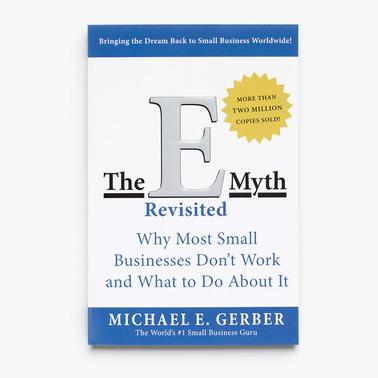
Let's start with a company that really helps build small business owners and young entrepreneurs. EMyth has been in the business coaching game since 1977. Their company truly defines entrepreneurship, with the coaching program acting as a comprehensive system for building businesses that focus on freedom for the owner, alongside producing consistent and great results.
The EMyth program is unique, as it pairs personal mentorship with proven systems that have been successful in growing businesses but also successful in growing you individually as a leader and company owner.

Melinda Emerson is one of the top coaching services to use if you are a female entrepreneur, or again, a small business owner.
Emerson has coached some of the most successful brands around, such as Sam's Club, Staples and American Express. Her experience and success is vast, with her priorities today focusing on helping women business owners with marketing execution and engagement strategies.
She's also very SMB-focused and offers services such as global SMB insights, too.

Here's another great business coach for all you female entrepreneurs out there.
Erin May Henry has built her career as a personal branding strategist. She's passionate about helping women achieve their business goals, alongside feeling empowered and encouraging people from all walks of life to build successful businesses.
You can sign up for her one-on-one coaching and mentoring sessions, which will help you build online influence and clients.
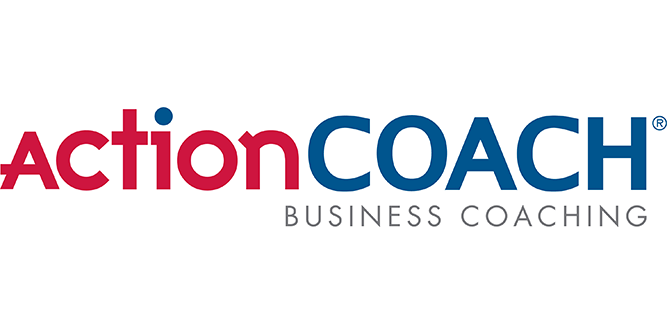
ActionCOACH is one of the best coaching services for small business owners and entrepreneurs. When you enter the site, it will ask you a few questions about your business and you as an individual, to establish what type of company you are and pair you with your perfect coach.
Once you've been paired with the right coach, you'll have the chance to work through their systematic coaching methods designed to help entrepreneurs overcome the challenges that come with running a business.
What's great about ActionCOACH is that you can try before you buy. They offer you a complimentary coaching session to see if the company is for you, and to determine if it's a good fit.

What's great about Strategic Coach is that there are a variety of programs to choose from. Perfect for small business owners and entrepreneurs, you can decide between the 10x Ambition Program™ or their Strategic Coach® Signature Program, with founder Dan Sullivan, who started the company back in 1988.
Both programs offer you the opportunity to strategize about the most important things for your business, with the end result designed to leave you with the next steps and a clear action plan about how you can grow your company sustainably and quickly.

This is one of the top coaching services for sales leaders, executives and managers. The Leadership & Sales Academy is perfect for people who are seeking coaching for sales management, management consulting, and leadership coaching.
Once you enrol in one of the company's programs, you will be appointed to a qualified coach who will help you build your perfect team. They will provide you with the tools to make your team more productive, with the end result helping your employees exceed their goals.

Mindshop is another great coaching service for entrepreneurs and managers. Signing up will give you access to their pre-built tools, coaching solutions, and workshops.
Working with Mindshop, you will be able to stay up to date with business trends, receive cost-effective online coaching, and learn how to offer it to your clients. This service will challenge you to be your best, by a community of experienced advisors.

Calling all you stay at home mothers, businesswomen and female entrepreneurs! Mom Biz Coach is run by Lara Galloway, and she specialises in helping women entrepreneurs, (especially mothers) achieve successes in their business ventures.
She works with talented women who need a little extra guidance when it comes to finding success and happiness in the world of business and teaches them how to successfully manage both home life and work life.
She offers one to one mentorship and encourages women to be able to take on business responsibility, make powerful decisions, define values and priorities and take that into both business and life with the utmost confidence.

Tommi Wolfe is the name behind The Startup Expert, whose programs are great for small business owners and entrepreneurs. The Startup Expert offers training and advice on business revenue and teaches you how to market your service/product.
The programs also set you in good stead when it comes to helping you find new clients quickly. New joiners can choose from their existing courses or attend live events, where you can get ahead of the game and learn how to kickstart a successful business.

This is one of the best coaching services if you are interested in life coaching.
Melissa Dawn is the name behind the service. She is also an author, speaker, and life coach, therefore has first-hand experience! Her services range from personal development online coaching, to the most popular online coaching program “CEO of Your Life and Business”.
Her courses are not only flexible to help you work around your own schedules, but they are also extremely popular. They can help you determine your life purpose, core values, how to create a big picture vision and enhance your overall being.

If you're an entrepreneur or small business owner, opting to undertake coaching from Prestige will leave you in good stead to enhance your own ventures. Robert Viney has over 34 years worth of experience in coaching, alongside running and owning several other successful businesses, so knows firsthand what it takes to be an entrepreneur.
Having been successful in his own ventures, Viney has shifted his energies, knowledge and experiences to share them with other business owners who may need a little guidance. His mentoring services and comprehensive business coaching are available to all who want to enhance their careers.

Marketers and small business owners, head over to Jay Abraham for all your business coaching needs.
He blends his situational coaching with a curriculum-based approach, however, he urges newcomers to learn his curriculum first before you begin. Once it has been learned, Abraham will arrange a one to one chat with you, so he can understand your unique business, and employ the necessary tools to help with your business.
You are able to receive advice and helpful frameworks, all of which work toward a successful outcome and company!
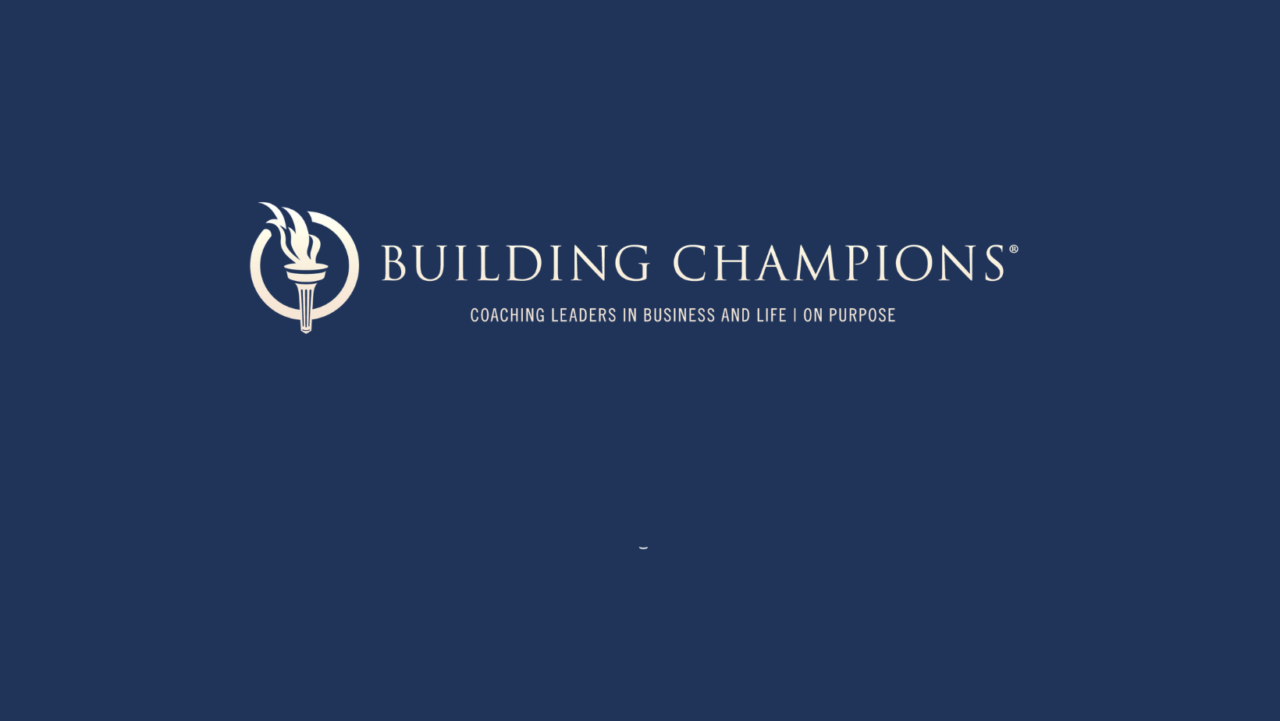
Building Champions is a very versatile company, as they offer services to small business owners, managers, and teams.
The company helps those seeking personal business coaching, appointing you to your own trainer, inviting you to inspirational events, and coordinating team workshops and assessments, which allow you to improve how your own personal team functions, performs and communicates.

If you're part of a family business, then the coaching offered at Barry Moltz will be perfect for you. His specialties lie in identifying issues and root causes of businesses and working to fix them by making recommendations that can be implemented immediately. Also perfect for SMB owners, Moltz has been helping corporations and SMB's since leaving IMB in the 1990s.
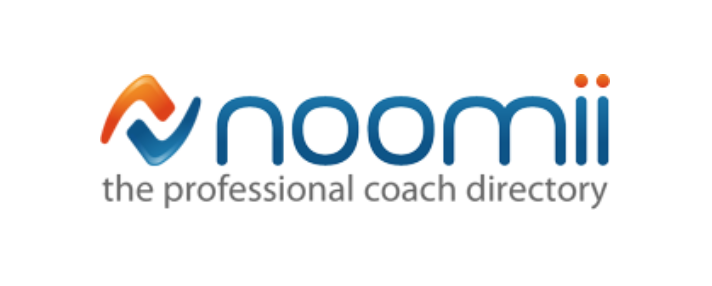
For our final coaching service, here's Noomii.
Suitable for absolutely anyone, no matter what stage of your career you are in, Noomii is one of the top coaching services out there. Their directory is very vast, with many life, career, business and executive coaches to choose from.
Also, the company has resources in 50 other countries, so you don't just have to be in the US to access their content!
So, whatever the reason you're searching for a business coaching service, we hope to have given you a head start on some of the best out there. Take your career to the next level and book one of the best coaching services today!
Does it always seem like you never have enough hours in the day? Even if you have a generous budget and a diligent team at your disposal, time is something your business could always use more of.
So, how do you take back some of these precious hours? Rather than taking work off of your plate, one of the simplest solutions is to develop better time management skills!
Fine-tuning these skills can be difficult on your own. You may be unsure of where to start. Or, you may be stuck in a years-long pattern of your old ways.
Luckily, our team at Brisbane Business Coaching can help you break free from unproductiveness! We have years of experience in helping clients better manage their time. Our experts can help you regardless of your business's size or long-term goals. Read on to learn more about how we help with time management and the benefits you will get from our coaching services.

Time is a finite resource. As undesirable as this fact is, it's unavoidable. However, how we use that time can make a big difference. According to Smart Company, nearly 70% of employees are distracted at work. In this same survey, more than half of the participants blamed under-performance on workplace distractions. Some of these workplace distractions included interruptions from colleagues, customers, and suppliers. Other key distractions are self-doubt, a negative mindset, technology fatigue, and unnecessary time-fillers.
Poor time management can also stem from the following issues:
Every individual and company will have poor time management skills for different reasons. When you recruit our time management coaching services, we will help you pinpoint the cause of yours. From there, we can set up a detailed plan to help you use your working hours more productively.

If you don't manage your time effectively, you may experience the following consequences:
When you manage your time poorly, you will not have enough time to complete all of your tasks. As a result, you will turn in work that is not completed to your highest standard.
People with poor time management skills don't just turn in low-quality work. They often miss deadlines and underestimate how long tasks will take.
Workers who do not manage their time properly will be less productive on any given day than those who do. They often jump from task to task and linger on unimportant distractions. Their inability to focus results in lower productivity and an inhibited workflow.
Do you often overextend yourself and take on too many projects that you don't have the time to complete properly? This is a common result of poor time management.
Turning in sub-par work late can damage your professional reputation. Your clients, co-workers, and superiors may find it hard to trust you. This can make it difficult to advance in your career.
If you don't use your time adequately at work, you may have to play catch-up on your days off. This can result in a poor work-life balance. You may develop feelings of stress and inadequacy, which can be hard to shake without making some major adjustments.
Do you want to take control of your work-life balance and avoid these other consequences of poor time management? Get in touch with us today, and we will help you regain control of your time.

When advising clients on time management, we draw inspiration from novels by well-respected time management experts.
One of our favourites is The 4-Hour Workweek: Escape 9–5, Live Anywhere, and Join the New Rich by Tim Ferriss. In this book, Ferriss covers many tips for success on how to have a 4 hour work week. Some concepts he discusses include:
Some of our other favourite self-help books about time management are:
Do the ideas presented in these self-help books intimidate you? There's no need to stress! Our team at Brisbane Business Coaching can help you implement them into your workplace. Get in touch with us today to hire our coaching services!

There are millions of project management tools out there. When we offer help with time management to our clients, some of our go-to tools include:
Trello is a list-making application that's free to use. You can organise all of your company's projects on easy-to-view boards. Trello lets you keep track of everything from the smaller details to the bigger picture. You can see who is assigned to certain tasks and never miss a deadline, as the tasks show alerts when they are close to their due dates.
ClickUp is an all-in-one project management system. From this platform, you can create to-do lists, documents, spreadsheets, events, and reminders in one convenient place. You can also send emails, as ClickUp is compatible with Gmail and Microsoft Outlook.
Notion is another all-in-one workspace. Here, you can plan out and write ideas and collaborate with other team members. You can sync this platform across various devices and communicate with collaborators in real-time. It works on mobile devices and online browsers.
Do you want a way to see who's working on what tasks at any given time? Avaza is the solution for you! It gives you a bird's eye overview of everything that's on your company's plate. This platform also lets you easily distribute resources to each project you're working on and make adjustments as needed. In the long run, Avaza will help you make better scheduling decisions.
As a nice bonus, Avaza is equipped with flexible budgeting and billing options. You won't have to switch over to another platform to charge your clients.
Evernote can be your go-to place to record and store all of your creative ideas. Use it to take notes, make lists, read content online, and revisit items you've written down before. It's a great way to stay on schedule and keep track of everything you've recorded. You can also add keyword tags on notes to find them more easily in the future.
EventCollab is ideal for logistics tracking and event project management. It holds your calendars, contacts, tasks, and schedules. All of your data is available in the cloud. You can access it at anytime from any location. Plus, you can restrict permissions, assign roles, and encrypt your data to keep it secure.

The best project management tools won't be the same for every company. To find the ones that will work best for your business, you will need to evaluate your needs and goals.
Not sure where to start? Get in touch with the staff at Brisbane Business Coaching! We will help you discover the best project management tools for your business. This way, you can take back your workdays and make the most of the time you have.

Whether you need help with picking out the best project management tools or better organising your days, you don't have to do it alone. Our team at Brisbane Business Coaching is here to help!
Recruit our time management coaching services to get the advice your business needs to thrive! We offer personalised guidance so your company can succeed. Get in touch today to get started!
Is your business struggling to break even? Do you only make a profit every once in a while? Are you desperately trying to figure out how to make more money? If your business is only making minimal profits or no profits at all, the profit first method can help. This procedure will completely change the way you think about making money at your business and will help to turn it into a cash cow in no time!

Profit First is a way of looking at the traditional profit statement in a new light. Generally, when most people run a business, they take their sales, subtract their expenses, and are left with a profit. The Profit First ideology encourages a modification. With this philosophy, you would take your sales, subtract the profit, and then you are left with expenses.
When businesses take out their profit first, it forces them to be more resourceful and innovative to earn enough to cover expenses. With this model, profit is not an afterthought that you hope for; instead, it is a priority that you plan for. With Profit First you will take out your profit before you do anything else, adjust your operations to reflect your true operating expenses, and start building up cash reserves and eliminating your business financial stress.

This model was devised by Mike Michalowicz. He spelled out the entire process in a book called Profit First: Transform Your Business from a Cash-Eating Monster to a Money-Making Machine. Since its publication, over 175,000 companies have implemented the system.

Profit First effectively uses the concept of “out of sight, out of mind”. If you take out profit immediately and put it off to the side where you cannot “see it”, then you will be less tempted to spend it. This system is designed to give you clarity about how you spend money on your business and discover how you can streamline processes so that you can increase your profits as much as possible.
It truly is a simple system that does not require an experienced accountant to implement. You can get started at any time and do not have to worry about doing anything retroactively.

Let's discuss a quick overview of how to set up a profit first system and implement profit mechanics.
Before you can start using this system, you will need to set up a few different bank accounts.
Income — This account is where all of your income will be deposited initially before moving into one of the other accounts.
Profit — This account will house the percentage of profit that you are setting aside.
Owner's Compensation — Do not forget to pay yourself! This oversight is one of the biggest pitfalls of small businesses.
Tax — Creating an account specifically to pay business taxes will ensure that you always have enough.
Operating Expenses — Any money left over will go into this bucket to cover your operating expenses.
In addition to these five main accounts you should also set up two more accounts at a separate bank where you can keep money out of sight and not be tempted to dip into it. The first is your Profit Hold account that will house your profit allocations until you distribute them at the end of each quarter. The second is your Tax Hold account where you keep money that will go toward taxes until it is time to pay them.
First you will need to understand how you are currently allocating your money. Once you know what your current percentages are, compare them to those of a healthy business that is similar to yours. Make sure that your comparison business operates at a comparable revenue level.
You need to make sure that the changes you make are gradual. If you currently only have a 5% profit then you cannot suddenly declare that you will have 60% profit. Setting realistic goals for your company in one of the most important steps on the journey toward achieving them.
Twice a month, allocate the funds from your umbrella account, the income account, into your five main accounts. While you may be wondering if it is okay to allocate funds daily or as needed, the recommendation is twice a month so that you establish a healthy rhythm that is not overwhelming. This schedule will also allow you to keep excellent track of your healthcare trends.
You should start by using your current percentages and then slowly up your profit percentage until it matches that of your comparison company. Make sure to move the profit and tax amounts into their hold accounts so that you will leave that money alone.
At the end of the quarter, half of the amount in the profit hold account can go to the owner as a reward while the second half should go toward building capital reserves for the company. You should also consider paying down debt with this money.

The Profit First method certainly is not for everyone. Some people have a hard time implementing it and sticking with it. Here are a few common pitfalls that people experience and some tips to avoid them.
Sometimes newbies get their initial allocation percentages incorrect. When that happens they start from the wrong place and do not grow as they should. Make sure that you are very careful when making your calculations so that you do not miss anything.
Occasionally, people have issues managing everyday expenses in conjunction with less frequent large purchases and run out of cash. There are a few ways to deal with this including timing your allocations properly and creating a separate account for emergency expenditures.
Some people go into overdrive trying to cut every expense imaginable. While cutting expenses is critical, you cannot let this emphasis on expense control get in the way of offering a quality product or service. Consider negotiating with suppliers for the best possible deals for great products instead of substituting for a lower quality.
Some business owners struggle to really adopt the principles of Profit First. They fall into bad habits like stealing money from the wrong account or racking up credit card debt and quickly lose hope in the process. When trying something new, it can be easy to be excited about it at first but often that excitement quickly fades when things start to get challenging. Try to keep the faith and realise that Profit First is a process that will not change everything overnight.

Some people may be more likely to run into problems with Profit First than others. If you find yourself in one of these categories then you may be more suited for another type of profit management system for your business.
People who struggle following through with new habits may struggle to adapt to the Profit First method. This process requires discipline that can be extremely challenging for some business owners to attain. On the flip side, people who are overly ambitious may be too aggressive in adopting the system and burn out. You need to make sure that you use the process sustainably so that you do not run out of cash to cover your operating expenses.
If you are running a startup that is funded by venture capitalists who expect to see aggressive growth, you may experience pushback trying to implement Profit First. This system is built for more gradual and sustained development over time. If your funders want aggressive growth as quickly as possible, you will have a hard time delivering with this system because that is not what it is meant to do.
If your accounting team is sceptical and will not get on board, then you may need to try something else. Profit First requires complete buy-in and is not worth doing if you are only going to be able to do it halfway.
If your bank wants to charge exorbitant fees on every new account you open, then this method with several bank accounts might not be the best way to go. However, you could always switch banks or try to negotiate for better deals, especially if you have been a loyal customer for an extended period. If you do decide to switch, you may want to explore credit unions because they tend to have fewer fees.
Profit First is a set of profit mechanics that can help you take your business from struggling to stay afloat to an undeniable success if you are willing to stick with it. You do not need to have any advanced experience in accounting to get started, so you could get going as soon as today! There is no better time than the present to transform your business and rid yourself of stress.
Don't have a full marketing team at your disposal? Working with a small budget for your small business?
Good news: you don't need all the time, money, and professional resources in the world to have good marketing.
While many business owners think that marketing is too far out of their wheelhouse, they fail to recognise the vast resources we have at our disposal today. Without needing to hire any in-house help, you can use these tools and resources to create your own marketing plan and execute it perfectly.
From SEO content marketing to link building, citations, and everything in between, it's entirely possible to handle your own DIY business marketing without wearing yourself out.
How? We're about to show you.
But before we get into the nitty-gritty of DIY marketing and the best vendors to use for every aspect, let's start from the bottom up. We'll cover baseline levels of marketing and ensure you have your ducks in a row before diving deeper.
Before you ever start marketing, there are a few things you should cross off your list. Completing these action items will put you in the right place to begin working and keep you on track to accomplish your goals.

Marketing isn't really something where you can just hit the ground running. It requires forethought and planning before any execution takes place.
To maximise your chances of hitting a home run with your DIY marketing, begin with these four steps.
First, you'll need to figure out what you can and can't handle on your own. Don't feel like you need to own every tactic and step in the process. While what we're talking about is DIY marketing, it does involve some outsourced help (but don't worry, no hiring of employees is necessary!).
For example, you may feel confident about running your own social media — but then you're scheduling content and realising that your graphic design work isn't cutting it. Or, you may be creating an incredible email calendar, but the copy for the emails themselves isn't flowing.
DIY marketing is about running the show for yourself and finding the right resources to fill in the blanks, so don't feel like everything needs to come from you.
Before you can sell anyone on your product or service, you need to really know and understand them.
Where do they shop? How long does it take for them to make a buying decision? What factors influence these decisions? What are their biggest challenges within the field you're in? What are the other products or services on the market right now missing, and how could you fill that need?
All of these questions should be considered, answered, and proven first. A great way to illustrate your research and findings is by creating buyer personas and even giving them names like Tracy or John, so they feel real.
A lot of businesspeople blur the lines between marketing and advertising — what's the difference anyway?
Where advertising sells, marketing shares. While advertisements can become part of a larger marketing plan, they are not the main event.
You should be most focused on delivering valuable information to the right people, at the right time, in the right way — and how to attract them to what you're offering.
Finally, the last step before you get to the DIY work is setting goals. Without goals, you'll be aimlessly marketing and hoping to achieve something you've never even established.
Create goals, write them down, and even come up with a few notes beneath each with how you will accomplish it.
Ready?
Now let's talk about how to achieve them.

DIY SEO (search engine optimisation) sounds a lot more complicated than it really is. Search engine optimisation is the practice of improving a website to increase both the quantity and quality of traffic using organic search engine results. Essentially, you're making your website more likely to rank highly on a search engine results page (SERP) when someone types in a query that is closely related to what you offer.
To produce better search engine results, you should follow these four main steps. You can do these yourself or easily find a vendor to help out (more on that below).
First up is keyword research. This entails finding the most popular search terms that your target audience is using. To get started, create a list of words that reflects what you do and what people searching for you might use to find you. Then, input these terms into a keyword research tool. You could use Google Keyword Planner or something like keywordtool.io. This will help you generate more terms.
Now take your long list of terms, evaluate the ones you like/don't like, and prioritise them.
Using your organised list, optimise the pages on your website by inputting these terms where relevant. The more you can use them in natural ways, the better your site will rank. (The more pages are optimised, the better).
Suppose you have any technical bugs like slow load time or links that don't work, fix those. If you're not sure what issues you have, you could do an audit using Ahrefs.
Finally, time to start building links! You can build these through the following strategies:

Another key part of marketing goes hand in hand with SEO, and that's content marketing.
Content marketing uses valuable content for marketing a product, service, or company. By creating trustworthy, high-value content about relevant topics to your target audience, you'll create a connection with them. They will be more likely to convert to a customer now than later.
To DIY your content marketing, you could handle the writing of dozens or hundreds of blog posts, white papers, and more, all on your own. But that would leave your hand cramping and take days or even weeks to complete.
That's where DIY content marketing vendors come in. One great way to work with these vendors through DIY marketing is creating a content plan or coming up with the blog topics, important keywords, and notes and then handing off this instruction to a team of writers that specialise in this kind of written work.
One of the best examples of this kind of vendor is SEO Butler. Among a few other things, SEO Butler specialises in high-quality content written for search engines. It has a team of UK- and US-based writers that can take a giant order of content work and get it done quickly by distributing the workload.
You'll get your content delivered back to you already optimised with keyword density, proofread for grammar, and scanned for plagiarism. Every piece is guaranteed to be unique.

As you could probably guess from what we talked about in the DIY SEO section, now we're going to get into link building. Links are critical to SEO and overall marketing success. Not only do links provide ample opportunity for visitors to find your website, but it also tells Google that other sites trust you enough to link back to you, which gives Google crawlers good reason to rank your content higher for relevant search terms.
Link building is the practice of creating content for other websites that will link back to you. Frequently, this means creating a blog piece that includes a link to your website, sending it to another website, and having them post it on your behalf. Other times, it means answering questions on a forum like Quora, where you can provide a helpful response and link back to your site. Lastly, links can come from your business's citations in directories, but we'll dive more into that after this.
The process of blog outreach, blog writing, and uploading content can be long-winded. If you're not up for handling all of that yourself, you can still DIY marketing and order links.
Save time and money and have someone else handle the outreach and link building process for you. Authority Builders and Gnosis Digital are two of the best in the business, and you can't go wrong with either. They'll find the right places to put links, build the relationships for you, create the content, and ensure it gets uploaded with a working link.

Up next is citations, which previously we touched on briefly. And no, it has nothing to do with a bibliography.
In marketing, citations are any mention of the company around the web. These citations often come from business directories that collect information and organise it for consumers to find.
Citations are good to have, as long as they are accurate. Inaccurate information could lead a potential customer away from you, which no one wants.
Not only do you need to create good citations for your business on the web, but you also need to check for bad citations that may be bringing you down.
NAP stands for Name, Address, Phone Number. These are the three pieces of information you'll typically find in a citation or directory listing. A NAP Audit goes through all the most common directories like Yelp or Yellow Pages to ensure the NAP listed matches the correct information.
If you need to create citations or start fixing incorrect ones, you may be overwhelmed thinking of all the websites you'll need to scour to find them all. Wrong. There are vendors out there who were made to do this for you. They have special processes that can get the job done quickly for one less thing to worry about.
If you need to create citations or would like to have a NAP audit run for your business, both SEO Builder and SEO Butler are great vendor options that will help you out.

We've told you about some of the most helpful vendors in the DIY marketing space, but we left one-off. SEMrush is a fantastic tool for all things marketing. From scheduling social media to directory management, SEMrush has tons of useful tools that can help you manage your marketing project smoothly.
Before we wrap this up, let's go over some quick tips for DIY marketing. Remember these along the way, and you'll create a marketing plan that leads you straight to success.
You don't need a ten-person team to create a successful marketing strategy for your business, but you also don't need to put the entire responsibility on yourself. With strategic planning, you can utilise the marketing tools and resources available today to create a DIY marketing plan that's both manageable and lucrative.
